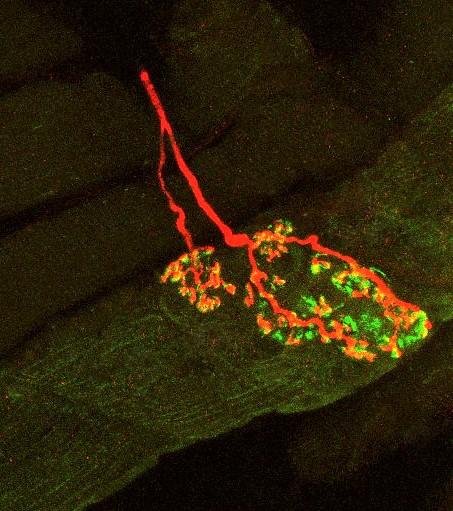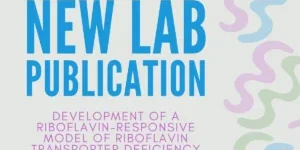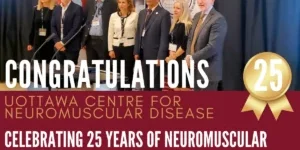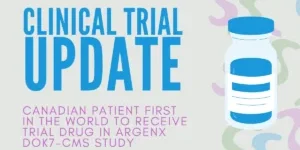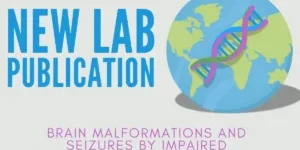The Lochmüller Lab wins CIHR project award!
We are delighted to announce that our project on congenital myasthenic syndromes (CMS) has been funded in the Canadian Institute for Health Research’s Fall 2018 project grant competition.
Through this funding we will be working on improving the diagnosis and treatment of congenital myasthenic syndromes through gene identification, understanding molecular pathogenesis, and preclinical therapies. This is a unique opportunity to bring Canadian patients into cutting-edge research. It is also an exciting local, national and international collaboration that gives us the opportunity to work with our CHEO-RI co-applicant Kym Boycott, leader of Care4Rare Canada, as well as collaborators Lawrence Korngut from the University of Calgary (leader of CAN-NMD, the Canadian neuromuscular network and CNDR, the Canadian Neuromuscular Disease Registry), Sergi Beltran and Ivo Gut from the National Genome Analysis Centre in Barcelona, Spain (leaders of the RD-Connect Genome Phenome Analysis Platform), Clarke Slater from Newcastle, UK (leader of the Wellcome Trust-funded Applied NMJ Research Facility) and Rita Horvath from Cambridge, UK (director of research in the genetics of rare neurological disorders).
Thanks to all our collaborators who helped us write a successful application, to the reviewers who took the time to understand our goals and who evaluated our work so positively, and to CIHR for approving the project. We’re excited to get started!
More about the project:
Inherited disorders of neuromuscular transmission in humans: understanding and manipulating molecular and cellular structure-function relationships at the motoneuron to muscle interface, the neuromuscular synapse, through a translational medicine approach
Voluntary movement of muscles in humans requires electric signalling from the nerve cells in the spinal cord to the muscles that help us speak, eat, breathe and walk. This process, called neuromuscular transmission, can be impaired by poisoning, autoimmunity, ageing, and genetic disease. In this research project, we will study gene mutations that lead to impaired neuromuscular transmission, so-called congenital myasthenic syndromes (CMS).
CMS usually start at birth or early childhood, cause severe muscle weakness, and are often fatal because of respiratory complications. Effective drugs are available to treat CMS, but to select the best drug we need to understand the underlying genetic mutation and its effect on neuromuscular transmission. We currently know about 35 different genes that can cause CMS, many of which were discovered by our research team. However, around 40% of all patients with CMS do not have a genetic diagnosis and available drug therapy is not effective for 50% of patients.
The goal of our project is to improve the diagnosis and treatment of CMS. We aim to:
- Provide a genetic diagnosis for patients with CMS and discover new CMS genes. We will use genomic sequencing techniques to identify gene mutations that cause CMS in a group of 1000 patients with CMS.
- Understand how gene mutations cause CMS to identify the most appropriate drug or new targets for drugs. We will study the underlying defects in cell and animal models using a variety of scientific techniques.
- Develop new drug therapies for CMS by testing them in cell and animal models. We will test a variety of drugs in cell and animal models. This research will lead to better diagnosis and therapies for Canadians affected by CMS.
Knowledge gained through this research will improve our understanding of neuromuscular transmission disorders.

